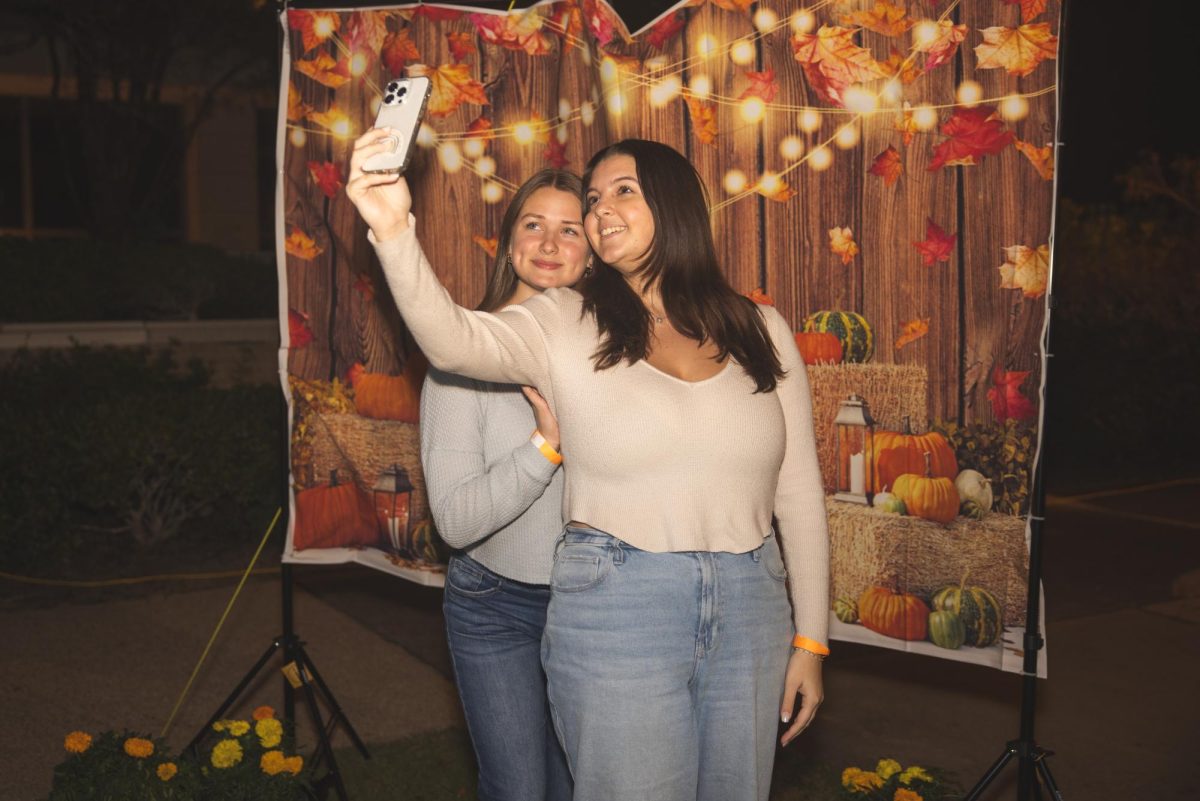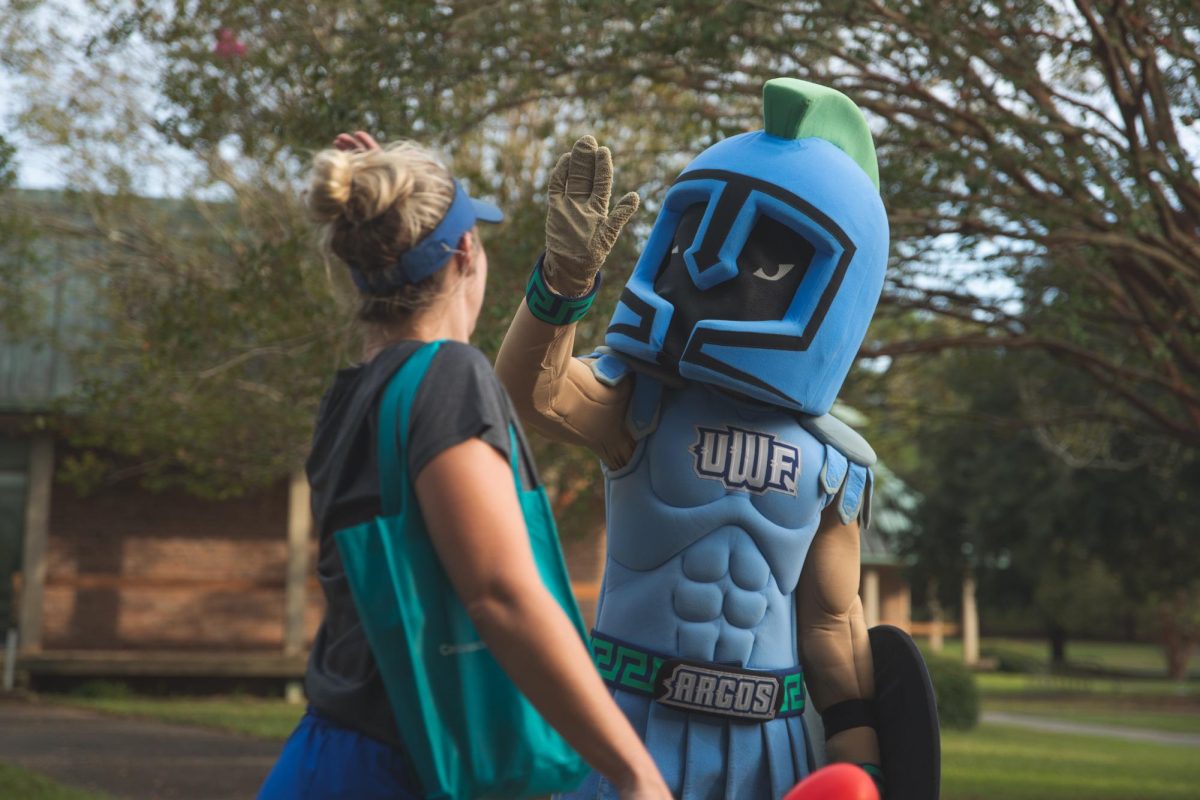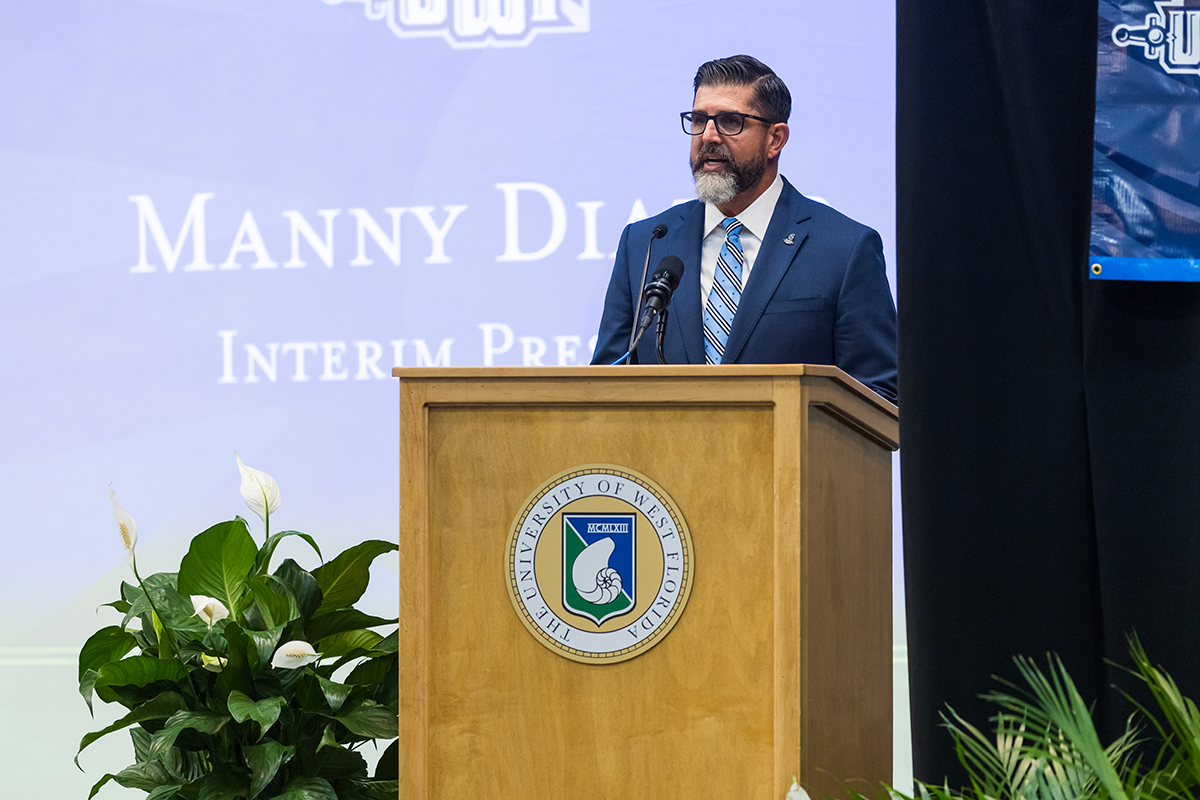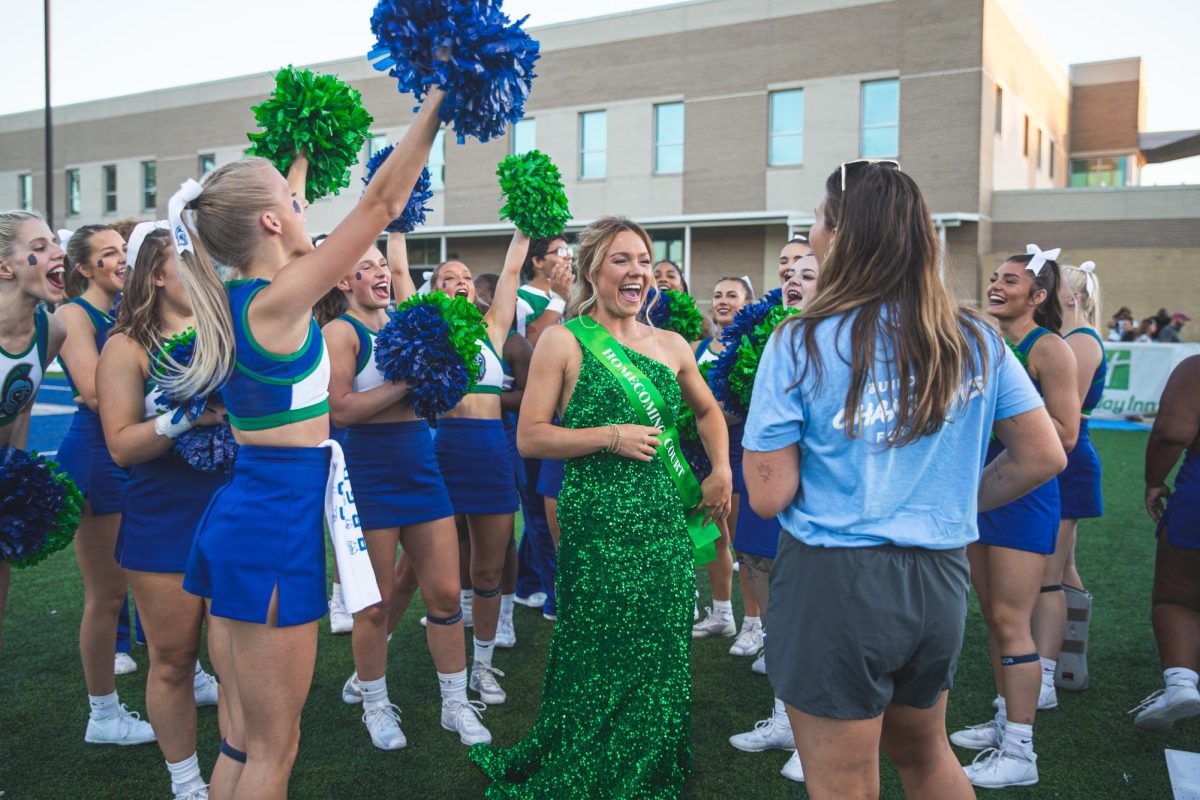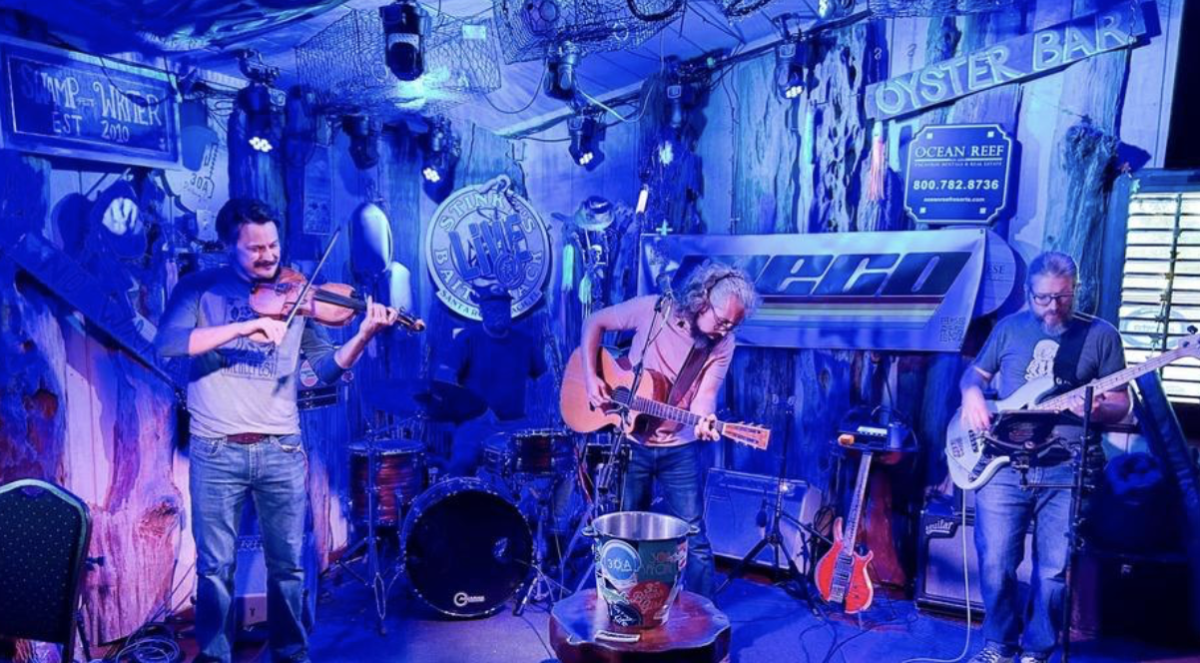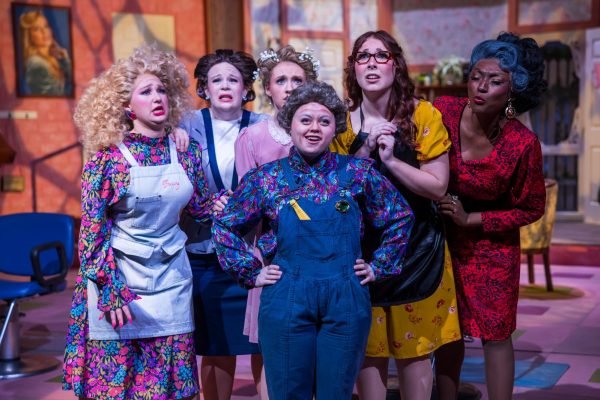
Steel Magnolias, recently performed at UWF’s Center for Fine and Performing Arts (CFPA), explores the bonds between six women in Louisiana, showcasing the strength the community brings through using Southern Beauty Salon culture, amidst some mixed-bag dialogue and story choices.
The play, originally performed at the WPA Theatre in New York City in 1987, was created by American writer Robert Harling, inspired by his sister’s death. A movie version starring Sally Field, Dolly Parton, and Julia Roberts was released in 1989.
The play starts off with Truvy Jones, played by Kadance Jablon, the main stylist of the salon, training new-hire Annelle Dupuy-Desoto, played by either Alissa Ferreira or Abigayle Currin, depending on the night. Dupuy-Desoto, when asked by Jones, and later the salon’s owner, Clairee Belcher, played by Kendall Falana, rejects all discussion as to why she moved or even if she’s married.
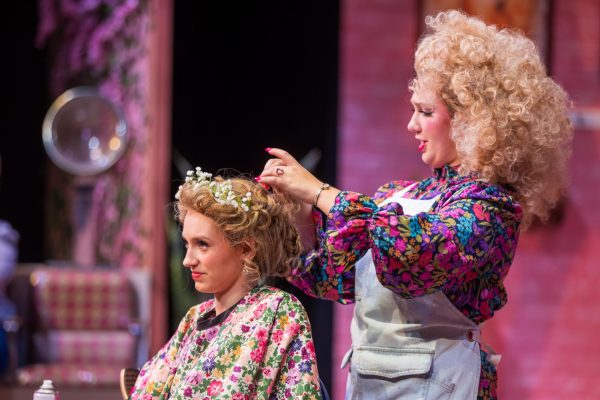
It is then revealed that an incoming client and close friend of both Jones and Belcher, Shelby Eatenton-Latcherie, would be their most important client of the day, as she needs her hair done for her wedding later in the day. She comes in with her mother, M’Lynn Eatenton, played by Sarah Jones, and it is immediately apparent that while the two are close, M’Lynn is struggling with her daughter’s decisions.
As she’s getting her hair done, Shelby suffers a diabetic episode, known as hypoglycemia, where it’s discussed how, though her biggest goal in life is wanting a child, her diabetes makes it extremely risky, which is the core of her and her mom’s disagreement. Her mother is concerned she wants to try anyway, but Shelby is defensive and defends her decision to try.
In Act Two, Shelby has her child. While it is initially assumed all is well, her mother reveals that pregnancy and diabetes complications have resulted in Shelby needing dialysis and a kidney transplant, with her mom being the donor.
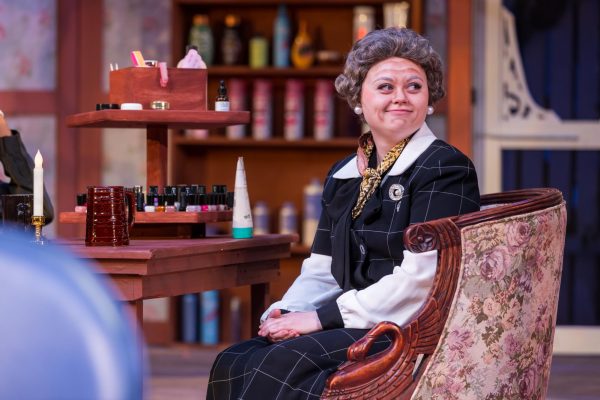
Shortly after, the women meet in the salon, all dressed in black, and it is discovered that the transplant failed, resulting in Shelby’s death. They all share their grief, but it ends in them finding joy in the community they created, despite the grief.
The play does a great job of showing the strength that comes with community. For instance, Dupuy-Desoto, who is technically an outsider, is never treated as such and is given a safe space to share about her very failed marriage, resulting in her becoming a born-again Christian. Though the other ladies aren’t nearly as faithful, they respect and treat her the same as she becomes more religious.
However, some characters fall in the cracks due to it being such an ensemble piece. Ouiser Boudreaux, portrayed by Harley Furlong, is the nasty, promiscuous wife of the mayor. Played for laughs, her character is barely given enough depth to grow attached to her. Compared to other characters, who are given rich backstories and better dialogue, more could have been done with her character from a writing standpoint.
Regardless, the performances themselves are all extremely strong. Each of the six stand out from one another, and even when the dialogue had jokes and quips that aged quite poorly from when it was originally performed, the performances were strong enough to make it work. The characters felt natural enough that, despite all the makeup and wigs, they just seemed like normal people. Without great acting, that would not be possible.
The costuming by Annaleese Fraser and the wigs and makeup designed by Caroline Becker make the play what it is. Taking place entirely within a salon, without the regional and time-accurate hair and makeup, the story would not have worked. Each character looked entirely unique and all stood out from one another, with their outfits all working for how the characters themselves acted.


